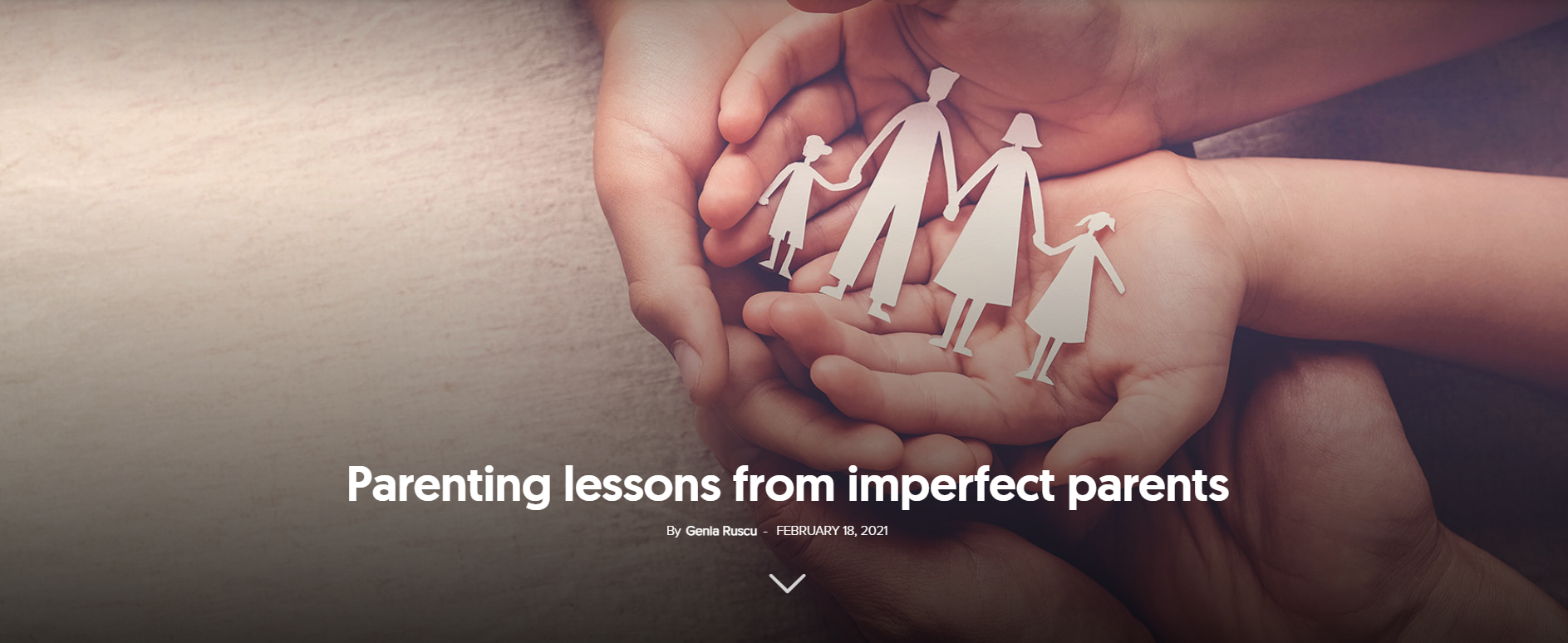The refrain: “I’m booored…” is “the worst song on the parenting soundtrack,” says journalist Kat Patrick humorously. Chanted in the most inconvenient moments, this complaint often triggers the parent’s guilt or concern. But there’s nothing wrong with letting your child get bored sometimes.
The truth is, boredom is not a state of being discovered by modern children. The children of old also got bored, it’s just that they seemed to be better at identifying ways to counteract their boredom. These kinds of complaints could not be too loud or they would have easily attracted an extra chore, or a clip round the ear.
Kat Patrick remembers that she would often be bored as a child, but that she always had a remedy at hand: a game whose difficulty she would gradually increase, counting raindrops, playing hide and seek among the store shelves, drawing V-shapes or bird silhouettes on the sunny lampshade. She not only became a true expert in chasing boredom away, but she fully benefited from her mother’s own boredom-defying capacity, always armed with pens, coloured pencils and paper—an arsenal that was called upon whenever the dreaded refrain began to set in. Instead of leaving her in front of the TV for hours on end, her mother tried to stir her imagination when she got bored, challenging her to find a name for a paper dragon, or draw the map of an unknown world.
Instead of being like apathy, boredom was a gate towards the inner world, each time the adults’ world became tedious or too stifling, Patrick says.
Today, boredom seems to scare us enough to eliminate even the threat of it, by pushing it away with one impatient touch of our phone screen. This is a tempting solution, but one that does not solve the problem causing boredom, namely that we cannot find enough motivation to maintain our focus on inner or outer stimuli. Focusing on what is inside us seems to have turned into an unbelievably toilsome task, which we try to avoid at all costs.
The fear of being left alone with our thoughts
We are so uncomfortable with being by ourselves that even the administering of an electric shock seems like a better option. This is the conclusion of a study that closed a series of 11 studies on boredom, the results of which surprised Timothy Wilson, the main researcher from the University of Virginia, according to his own words.
In most of the studies conducted by Wilson’s team, the subjects were asked to step away from any kind of external stimuli for 6-15 minutes, and focus only on their thoughts. In the first 6 studies, when they were asked to evaluate their experience on a scale from 1 to 9 (from unpleasant to extremely pleasant), 42% of the subjects chose a low score.
In the end, researches placed the participants in a laboratory, where they could choose to remain still for 15 minutes or to press a button to receive a electrical shock. Although, initially, all participants declared they would be willing to give up part of the money they would have received for participating in the study rather than endure these shocks (relatively gentle in terms of intensity), 67% of the men and 25% of the women pressed the button, choosing self-inflicted pain over sitting still in an empty room.
Trying to explain this strange choice, Wilson says he couldn’t have imagined that people disliked being alone so much.
After all, people have so many memories to browse through, but also an extraordinary capacity to imagine things and build stories. This flight from one’s own person is based both on boredom and on our reduced ability to control our thoughts, the researcher believes.
While some researchers thought that the results of the study have been over-evaluated, its authors claim that the degree of comfort people experience when they cannot do anything but think has been a subject too long ignored by psychology.
Commenting on the results of this study, Jonathan Schooler, psychology professor at the University of California, Santa Barbara Campus, confessed to being surprised and a little discouraged by how far people will go in their attempt to avoid immersing themselves in their thoughts for a few minutes. On the other hand, Schooler also looks at the glass as half full: there is still a segment of the population that enjoys having time for reflection, and future research will shed more light on the circumstances that favour this contemplative attitude.
Those who fiercely guard themselves against boredom ultimately guard themselves against their own selves, Nietzsche said. This is a truth that needs to be rediscovered by overstressed parents, who oscillate between their child’s permanent involvement in structured, adult-guided activities and rules (in which case, they lose their creativity and spontaneity and do not know how to play alone), and abandoning them into the care of digital technology.
The fear of letting children get bored
Less than one in five parents believes it is beneficial for children to get bored from time to time, according to a study conducted in 2017. Parents admit that digital devices take up too much of children’s time, but are not aware of the benefits brought by childhood games, or the necessity of letting their child get bored sometimes, the authors of the study say.
Of course, the permanent boredom of a child may rightly be considered a serious problem. To solve it, a specialist might be needed (one that could properly diagnose depression, attention deficit disorder, hyperactivity, etc.) Excessive use of multimedia technology may also lead to neurocognitive overstimulation and boredom when children do not get the same kind of stimulation. The style of education children are put through can favour their ability to choose for themselves how to spend their free time in a healthy way, which will bring them joy.
We live in the age of intensive parenting, characterized by high emotional and financial demands, which burden the life of adults and children alike. Science does not have only good things to say about the age we are in. A study conducted by researcher Patrick Ishizuka from Cornell University showed that parents believe that the best methods to educate their children are those that require a lot of time and money. Most parents also believe that recreational tasks should take precedence over domestic ones when they spend time with their children, but also that a child who is bored after school should be enrolled in extracurricular activities.
A certain dose of boredom used to be considered normal and even welcomed by parents before the age of intensive parenting, says journalist and writer Pamela Paul.
Nowadays, leaving a child to deal with their moments of boredom on their own is considered a sort of failure in fulfilling parental obligations. On the contrary, every free moment must apparently be optimized, directed towards a goal or filled with entertaining activities, Paul says.
Listing a few studies that emphasize the positive side of boredom, the writer concludes that letting children put up with moments of boredom is actually the best way to prepare them for a future where they will be confronted with monotony, boredom, and unpleasant activities.
Boredom is a magical element in shaping children, psychologist Vanessa Lapointe says. Many parents complain about their children’s lack of motivation, and the fact that they are not interested in anything, but the solution is at hand, says Lapointe, pointing out that a child needs to experience boredom “to arrive at an understanding of who they are,” to discover their passions, and to develop their creativity and motivation.
On the positive effects of boredom
Boredom interferes with the development of problem-solving abilities, says researcher Teresa Belton form the University of East Anglia. Children should be left to solve the problem of boredom on their own because these windows of unstructured time also help them to build friendships and work together with other children, Belton says. These interactions help them learn to communicate, to initiate visual contact, and to read body language, skills which are harder to acquire in a technology-devoured generation.
Adults and children alike use the screen to keep boredom at bay, but losses in creativity are high under these circumstances.
Belton began studying the subject in the 1990s, when he researched the influence of television on children’s ability to tell stories. Surprised by their lack of imagination, the researcher wondered if TV reduces the imaginative capacity. At that time, studies had already been carried out to show that there was a correlation between the two elements. Thus, a study conducted in the 1980s in Canada, as television spread across the country, found that in communities without television, children scored higher on divergent thinking skills, but these decreased as they had access, in turn, to television programs.
Boredom is an opportunity rather than a hindrance, says Belton, mentioning the testimonies of several professionals on the role boredom played in their creative development. Writer Meera Syal said that the boredom she experienced during the holidays in her small mining village were a true source of creativity. The visits to the town library turned into field trips and the fact that she did not have much to do, urged her to always try something new: to bake cakes with a local lady, to talk to people, and to look out the window for hours on end, watching the seasons changing. Boredom made her start a journal where she would write down her thoughts, but also stories and poems, thus practicing her ability to write and laying the foundation for her career as a writer later on.
In a time when the external environment bombards children with more stimuli than their attention can handle, parents must encourage curiosity, inventiveness, observation, and children’s capacity to focus if they wish to offer them something that will be useful for the rest of their lives, Belton says. After all, she says, the goal of a parent is to raise an independent child with initiative, and to achieve this goal, the winning strategy is not filling their time with material goods or entertainment, but rather creating an environment in which harmonious development is encouraged.
If she were to give a piece of advice to parents, this would be to not let themselves be frightened by boredom, but to embrace it, says professor Sandi Mann, who has been researching boredom for almost 20 years now. If you allow your child to face moments of boredom, then you will unleash a world of creativity, Mann says.
When we let them take the initiative, to find solutions on their own, we actually allow our children to take risks, to think outside the box, and to learn how to deal with dead time or activities that must be done even if they do not offer instant gratification.
Is there something that parents can do when children complain that they are bored? The answer is that you are doing more when you’re interfering less, Mann says. It is enough to set aside digital devices, to offer them (in the case of small children) a few objects to play with and to let them take the lead, to allow them to spend as much time as possible in the open air, suggesting open activities without any fixed outcome.
Parents are often surprised by the fact that their offspring are so easily bored. After all, they are involved in all kinds of school and extracurricular activities and they use technology—too much. This is actually where the problem lies, says psychologist and researcher Richard Rende. Most of the time children have is programmed: stimulation comes almost exclusively from the outside, and motivation is external.
In response to their whining about getting bored in their spare time, parents suggest all kinds of things, but this does not solve the problem. When parents always deliver solutions to counteract boredom, the result will actually be even more boredom, Rende says. Boredom is the clue that the child needs to develop initiative, learn how to manage their free time, to discover passions and abilities that would otherwise be ignored should they spend their time doing homework or playing on the computer.
Perhaps the most important thing a parent can do to help a child profit from boredom is to set a good example themselves: “If your child sees you responding to boredom creatively, they learn to welcome it too.”
Carmen Lăiu is a writer for ST Network and Semnele timpului.




















